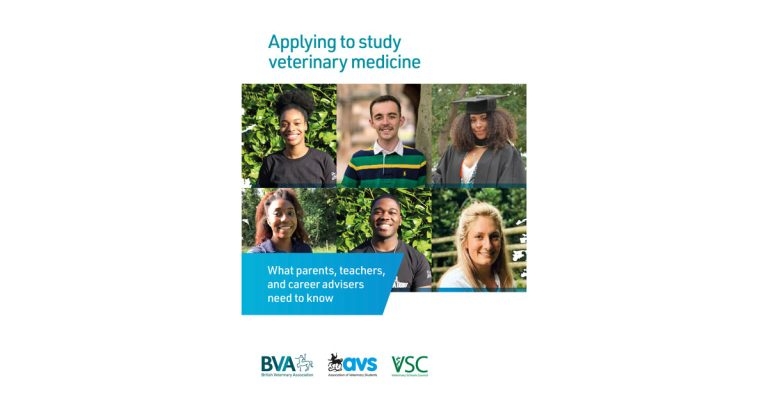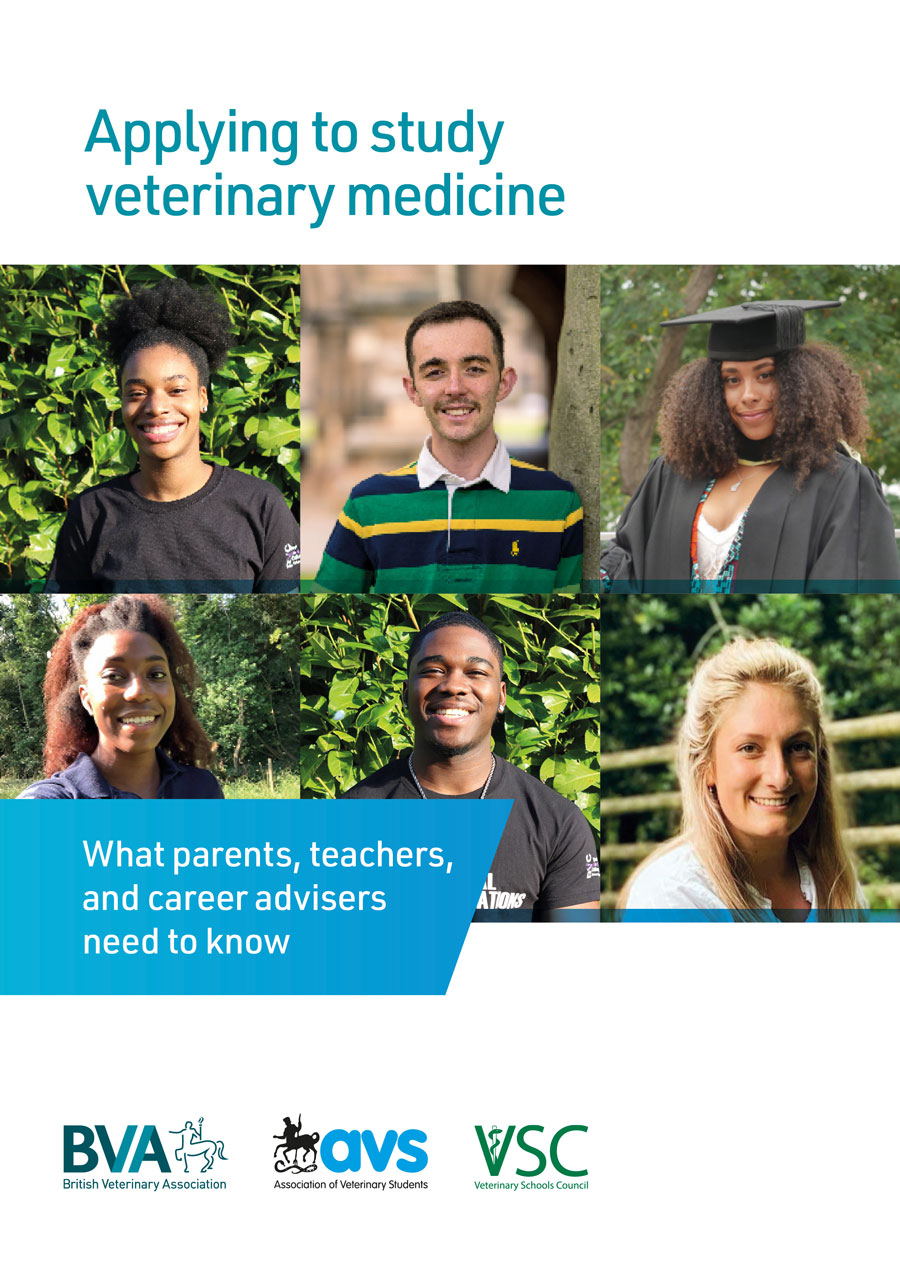16 Mar 2022
BVA guide, which vets can use in conversations with young people considering vet school, addresses issues about grades, lack of veterinary background, work experience and applying more than once.

Vets are being asked to help bust some of the myths around applying to vet school to encourage more young people from all backgrounds to consider joining the profession.
Veterinary medicine courses have historically been viewed as highly competitive and hard to secure places on, and many organisations representing the profession are concerned this has put off many potential applicants.
Workforces are stretched and many practices are struggling to recruit, but new vet schools are coming online and vet representative groups have been working together to encourage greater diversity.
The BVA thinks many young people are being discouraged from even applying because they fear they would not achieve the grades or come from the right schools to make it on to a course.
The association has put together a 28-page guide, “Applying to study veterinary medicine”, that it hopes parents, teachers and career advisors will be able to use in their discussions with secondary school students. It also hopes vets encountering interested younger people will also use the guidance to counter some of the vet school myths.
The BVA hopes the guide will reassure potential vet students, and those in a position to guide them, that a place on a veterinary course is achievable, regardless of financial, educational or cultural background.
BVA president Justine Shotton said: “As vets ourselves, we know getting into vet school is a challenge, but we also know how rewarding it is. It is a brilliant first step towards a fantastic career and we want more young people to consider applying, no matter what their financial, educational or cultural background is.
“But the BVA is concerned that some of the most common myths, such as needing all A*s, make it seem completely out of reach for some young people. These misconceptions risk putting potential students off and we need to help enable parents, carers, teachers and careers advisers to fully support students in making decisions about their career.”
And she added: “We want to make sure these young people are given the correct information to help them reach their potential and realise that becoming a vet can happen for them if they work hard – no matter what their background is.
“If you’re in a position to advise a young person about their career, please take the time to read our guide, or even pass it on to your own children or schools in your community so the vets of tomorrow can feel more confident about their chances of applying today.”
Common myths in the guide include it’s nearly impossible to get an interview, applicants must be straight-A* A-level students, applications are judged on a secondary school’s reputation and applicants need many weeks of work experience under their belts to be successful, and come from an animal or vet background.
Addressing these specifically, the guide says 2,400 people apply for the 1,200 places, so applicants have a 50% chance of gaining a place first time; conditional offers can range from AAB to A*AA; vet schools assess students on their own individual merit and circumstances; and, although it varies, only a couple of weeks’ work experience, which can be online, is enough for some schools, while only a minority of vets have friends and relatives also working with animals.
Other myths versus facts address perceived favouritism towards private school applicants, career opportunities beyond practice and that students applying more than once for a course are penalised.
Charlotte Tobin-Williams, president of the Association of Veterinary Students (AVS), said all journeys to vet school were different, and that it was “a shame there are so many myths out there that can often dissuade a person from applying to that is such a fantastic career pathway”.
She said: “One of several focuses at AVS is to ensure we help those who are applying to vet school, and to make sure applicants are aware there are these common phrases which may be said, but are often not the truth.
“It’s difficult as a vet student myself to hear more and more comments which are simply not true, and hopefully this document can help spread awareness in particular for parents, carers, teachers, career advisors and students. It would have helped so much if I had one of these documents to look through at high school.”
The resource, which is available online, has been welcomed by the body representing the UK’s vet schools.
David Bainbridge – who chairs the Veterinary Schools Council admissions committee and director of studies in veterinary medicine at St Catharine’s College, University of Cambridge – said: “For many aspiring vet students, application to a vet school can seem daunting. It is therefore essential that applicants and those who support them through this process have access to accurate information.
“Vet schools are also working hard to widen participation into veterinary medicine through schemes such as gateway programmes and the use of contextual admissions. We look forward to continuing to work with the BVA and other colleagues in the sector to develop further resources that will ensure that lack of information is not a barrier to aspiring vet students.”
